“People of faith and faith communities… can be something that helps sustain the movement.”
-Cherice Bock
As the Oregon Department of Transportation gears up for the next phase of work on their I-5 Rose Quarter expansion project, anti-freeway activists want the agency to know they’re ready, too – and their support is growing. A rally outside Portland’s ODOT headquarters yesterday afternoon demonstrated the diverse coalition of people involved in the local fight against freeway expansions.
This rally consisted of environmental activists from faith groups who want to show ODOT the range of people holding them accountable. The people at the demonstration yesterday talked about their support for the young activists in the Youth vs ODOT group who protested the freeway expansion plan every other week for more than a year (they’re on a hiatus for the time being) and planned tactics for speaking out against the transportation agency.
Cherice Bock, a Quaker and active environmentalist, led discussion at the rally alongside Chris Smith of No More Freeways. Bock is also the Creation Justice Advocate with Ecumenical Ministries of Oregon, a collective of faith-based groups who advocate for social justice issues, which recently became a member of the Just Crossing Alliance.
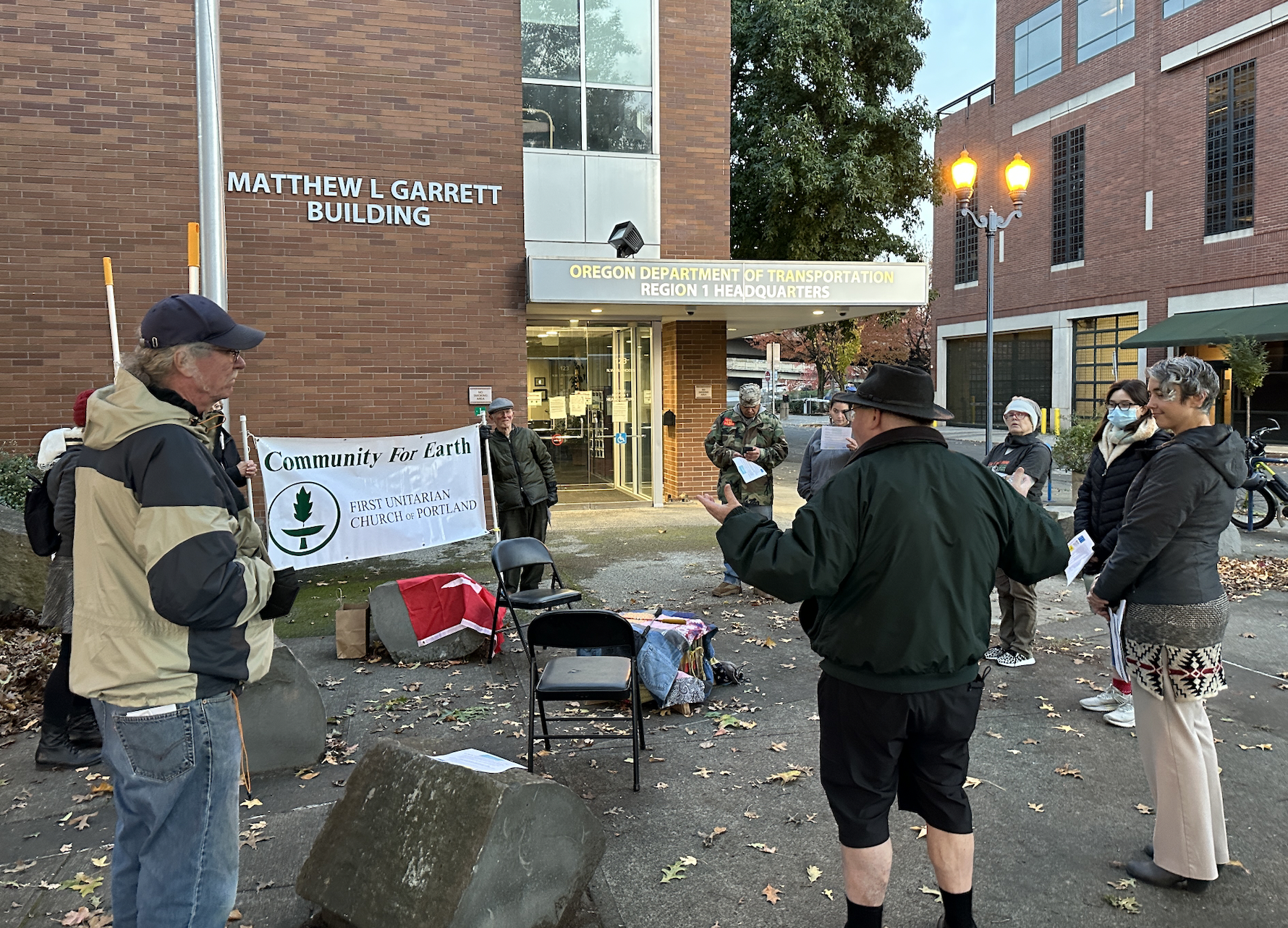
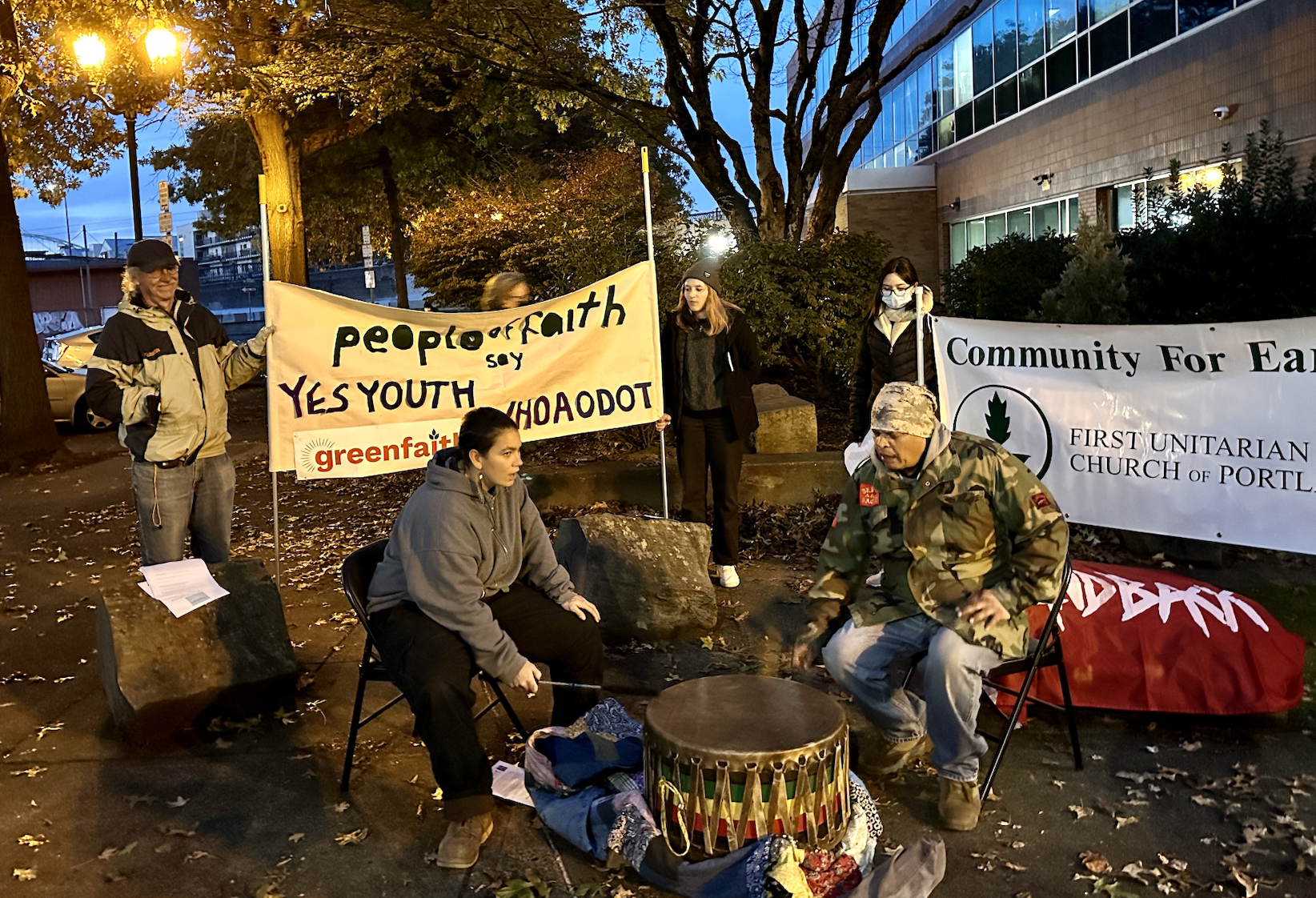
Bock practices ecotheology, a religious philosophy with roots going back to the mid-20th century that aims to connect human religion and spirituality with nature and environmental degradation. I had never heard this term before, and I was surprised to learn how many religious organizations in Portland have dedicated environmental groups with actionable and even radical goals.
“There are different ways of practicing Christianity. One way is to say, ‘let’s just use it all, because it’s here for us,'” Bock said. “But then there’s also a practice of care and respect and responsibility for taking care of this place. This is a land we’re given responsibility for to make sure it stays healthy to pass onto future generations.”
After Smith gave participants a run-down of the Rose Quarter project and upcoming plans to fight the expansion, Bock started a conversation rarely heard at protests like this. She asked the group to talk about their climate grief and anxiety and share what gives them hope to keep working to make a better world. Then she asked people to name a step they’ll take in the next week to bring that world closer to reality.
The first step most people said they’ll take is to participate in the upcoming public comment period ODOT will open next week for people to share their thoughts on the Rose Quarter project.
Bock said she thinks ODOT might take notice of public comment from a demographic of people they don’t necessarily associate with the environmentalists they’ve stereotyped and cast aside.
“It’s a different perspective,” Bock said. “There are a bunch of different kinds of people who care about this and are speaking up.”
Bill Harris is a member of the Community for Earth at First Unitarian Church in downtown Portland. He thinks it’s important to get the dire message about the climate crisis out to congregants, even if they are hesitant to receive it.
“There are a number of people in faith groups who have come to know the doom humanity is facing,” Harris told me. “But it’s a hard message.”
None of these people are trying to convert others or preach their religious message to unwitting bystanders. In fact, the gospel didn’t come up at the rally outside ODOT at all. And they don’t discount the important of other traditions of spirituality and connectedness to the earth that aren’t in the western religious canon. Joining the rally were Teewahnee and O, members of the Warm Springs and Ojibwe tribes respectively, who played music to open and close the event and talked about the deep, spiritual relationship Indigenous people have had with nature for time immemorial.
But regardless of the practice, Bock said she thinks having some kind of spiritual grounding is helpful for processing the emotions that come with truly facing the devastating climate crisis, which can often be a lonely mission.
“Activists can get really burnt out working on such a big project. It’s hard to keep yourself sustained when doing sustainability,” Bock told me. “A lot of times, people of faith and faith communities are able to have a community among themselves and reach out to the broader community for grounding. It can be something that helps sustain the movement.”



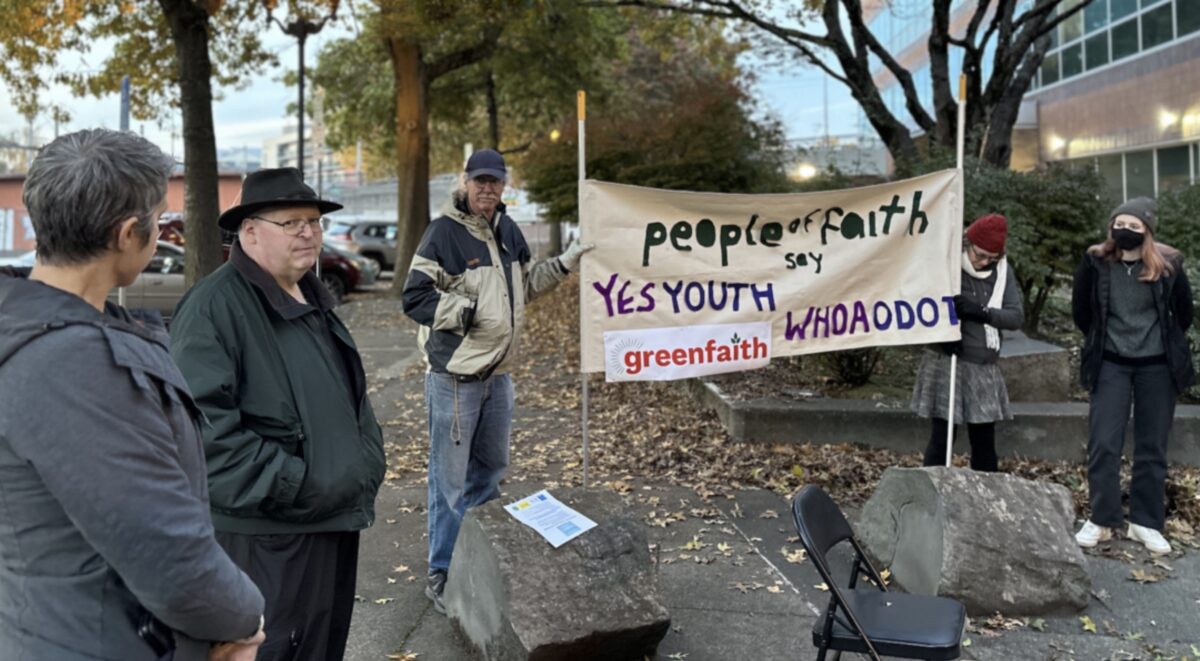

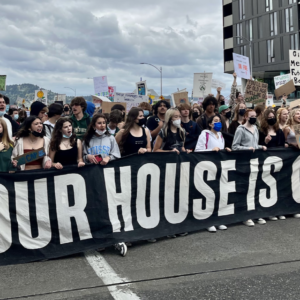
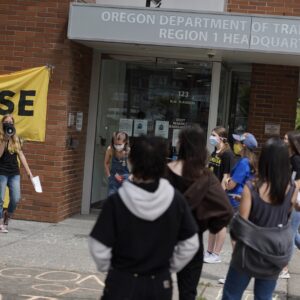
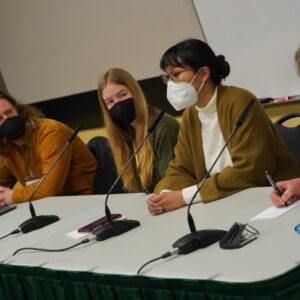
Thanks for reading.
BikePortland has served this community with independent community journalism since 2005. We rely on subscriptions from readers like you to survive. Your financial support is vital in keeping this valuable resource alive and well.
Please subscribe today to strengthen and expand our work.
Great news–all hands are needed on deck!
I really appreciate and support the kids that protested outside the building and those that continue, but just a note that the building is still closed and a (temporary?) region HQ building is now down in Tualatin. The majority of people that work in the office go to the Tualatin building including the region manager.